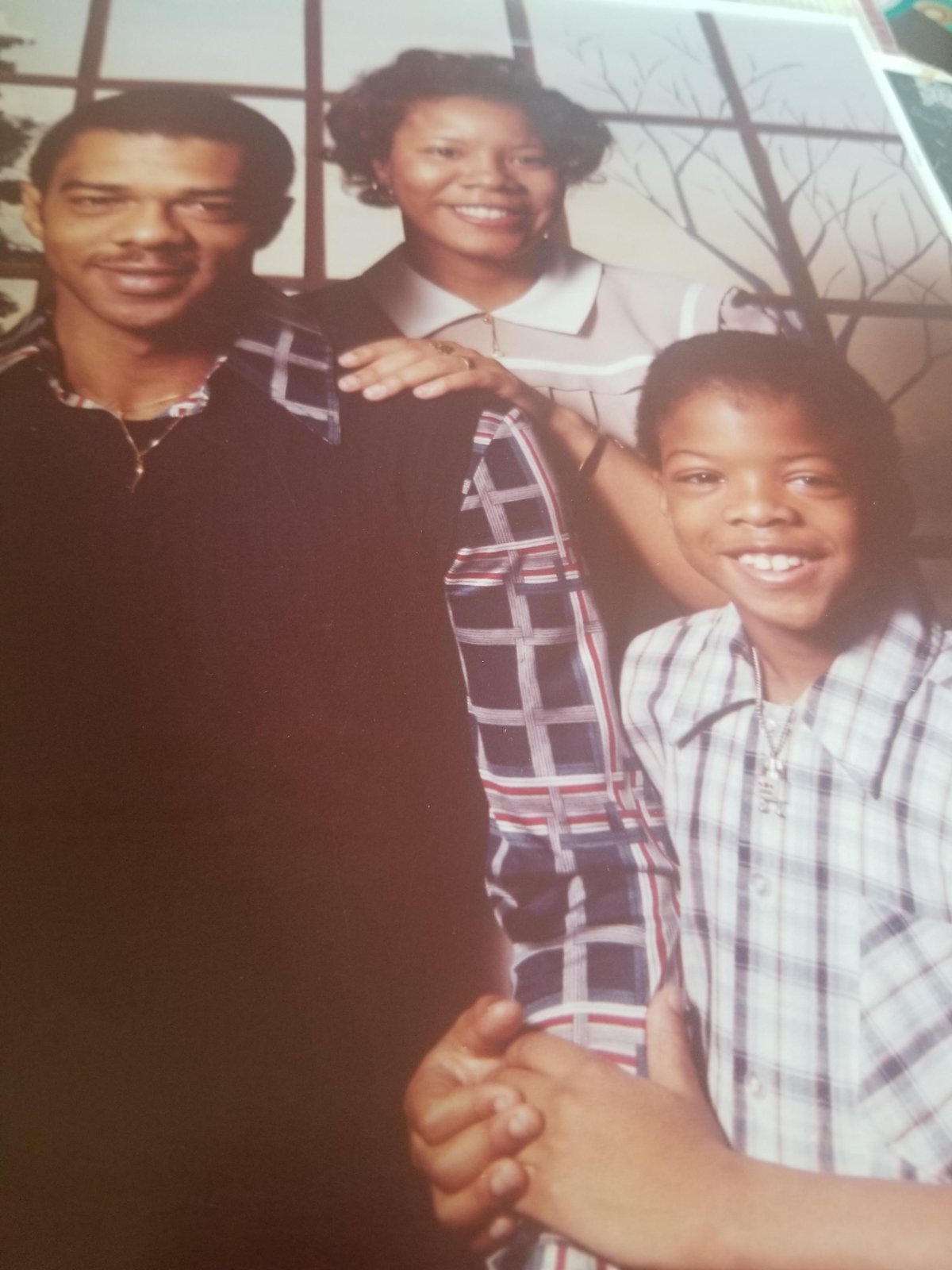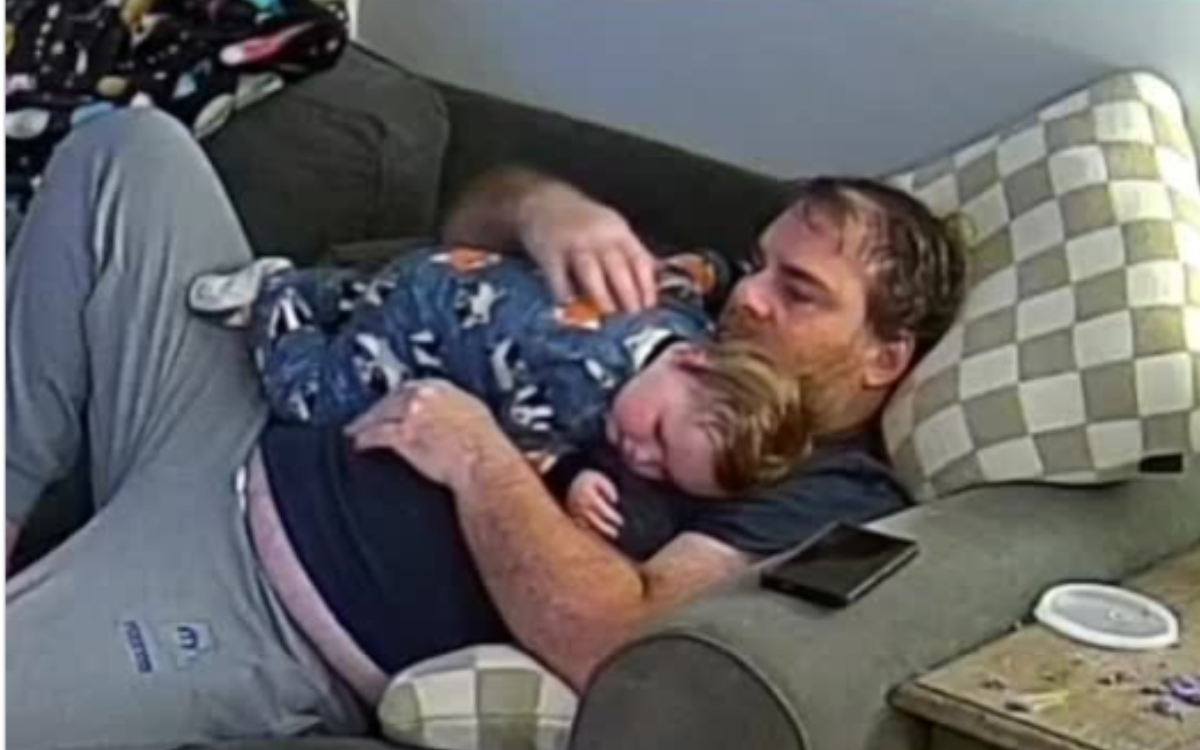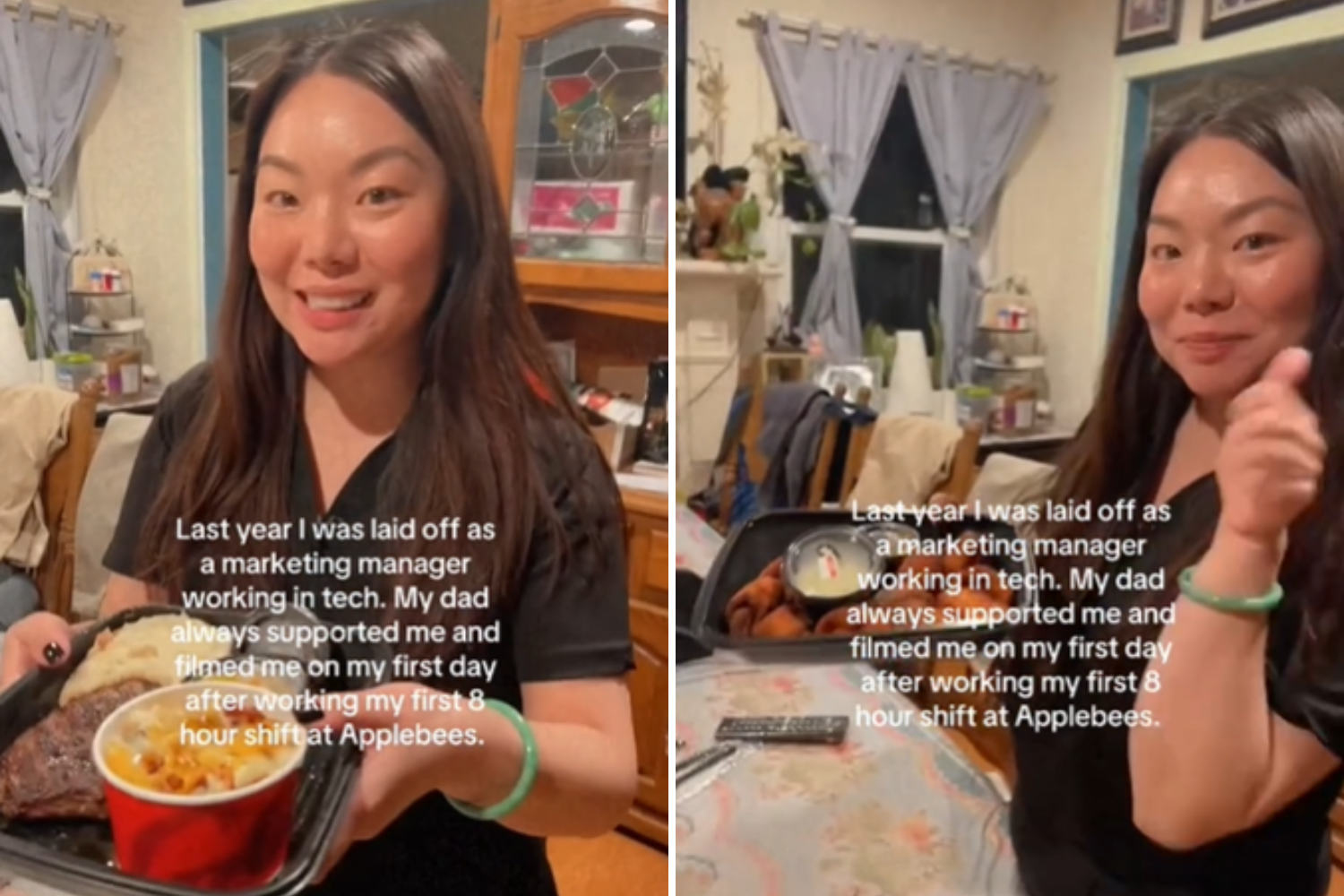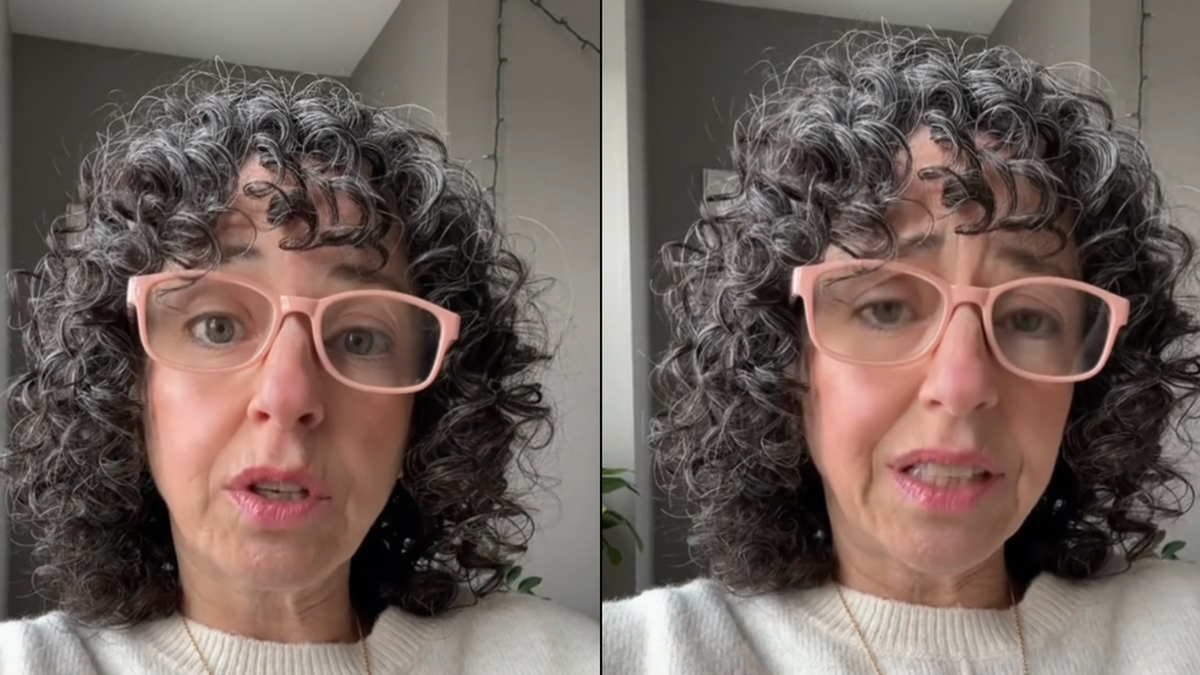Three Americans' recent release from Chinese imprisonment has resulted in holiday bliss for some. But as an estimated 200 to 300 Americans remain detained by the communist regime, families of those still jailed tell Newsweek they continue to look for any sign of optimism to bring home their loved ones.
Americans John Leung, Kai Li and Mark Swidan returned home one day before Thanksgiving, as part of a prisoner swap for three Chinese individuals. The exchange, help spurred by a congressional committee, mirrored a similar swap in September in which U.S. citizen David Lin came home after nearly 20 years.
Multiple attempts by Newsweek to reach Katherine Swidan, mother of Mark, and Harrison Li, son of Kai, received no response.
"These releases were made possible through tireless diplomacy and continuous efforts of this administration," a U.S. State Department spokesperson told Newsweek.

Senior U.S. officials raised the cases of the three released prisoners with the People's Republic of China [PRC] counterparts "in multiple interactions over years," the spokesperson added.
National Security Advisor Jake Sullivan traveled to China in August, urging for the release of all Americans wrongfully detained in China; Secretary Antony Blinken raised the three individuals' cases with Chinese diplomat Wang Yi at the United Nations General Assembly in September; and President Joe Biden pressed Chinese President Xi Jinping for their release in Peru in November.
A spokesperson for the Chinese embassy told Newsweek, "Unfortunately, we have no more information to share."
Newsweek reached out to the Donald Trump transition team for comment on how his administration plans to negotiate for the release of the remaining Americans in China.
Who is Dawn Michelle Hunt?
While the trio regained their freedom, other Americans including Dawn Michelle Hunt and Nelson Wells, Jr. continue to be imprisoned in China. Each has been held under Chinese Communist Party rule for over 10 years.
Dawn Michelle Hunt, 53, is currently incarcerated in Guangdong Women's Prison after her 2014 arrest for smuggling—a charge "she vehemently denies," her brother, Tim, 59, told Newsweek.
She originally arrived in China after receiving notice she had won a contest, even being provided a passport to travel to Hong Kong. She spent more than a week there and then another week traveling mainland China after acquiring a visa.

It wasn't until she was offered to visit Australia when the trip went sour. Contest organizers purportedly gave her a designer purse that, without her knowledge, was lined with drugs and flagged by airport security. She was immediately detained, arrested, later found guilty via trial and sentenced to death.
For over the past decade, she has developed physical ailments including uterine fibroids and potentially ovarian cancer, according to local doctors. Tim said she's also received multiple blood transfusions due to heavy bleeding and has refused a recommended hysterectomy out of distrust for her caretakers.
Due to prison rules, Hunt can only make a couple of calls per month to family or legal counsel. Her prison has become stricter, Tim added, disallowing certain written communication from reaching her and only allowing her to read Chinese news and periodicals, for example.
Tim, formerly a 28-year Chicago Police veteran, said the imprisonment is impacting him, his younger brother, and their 91-year-old father—the latter of whom is a U.S. Army veteran and retired Chicago Police sergeant of 32 years. The father was recently diagnosed with prostate cancer.
But health is not his father's biggest priority, Tim said. Rather, it's to "see my baby before I check out."
"It's like, you feel guilty for living your life," Tim said. "I mean, you've still got to live life but you still feel guilty because your people, your family, is not complete. You know somebody else is still locked up, so you want to live your life with them but they're in dire straits.
"It's such a weird—it's almost as if your life went, too, not physically but mentally. It's almost like you're locked up."

Tim last saw Dawn this past summer when he traveled to China to see her, pledging to "shake the tree" and push harder for transnational negotiations for his sister's release and others like her.
He hopes that the Trump administration will use the recent CECC hearings as motivation to continue government intervention for wrongful prisoners.
"It's a struggle every day," Tim said, his voice cracking. "You just take these small little steps. ... It's hard trying to keep that [family] dynamic together. To be honest with you, we are sort of breaking apart. Well, shaking up.
"We're not giving up, but we're close—so close to the edge, we find any little thread we can grab and hold. You keep hoping."
Who is Nelson Wells, Jr.?
Nelson Wells Jr., 51, originally from New Orleans, Louisiana, was arrested by Chinese authorities on purported drug charges in May 2014 and subsequently sentenced to life. His term was reduced to 22 years in 2019, but he will not be freed until 2041.
His father, Nelson Wells, a U.S. Army veteran, told Newsweek that he and his wife, Cynthia, are ambivalent about the recent swap—happiness for the families involved but a lack of vindication for their own child.
"Biden, you know about my child now; you know about Dawn Michelle," Wells said. "You need to not say that you're done. You have a couple more months left in your administration. Step out there and go out with a bang.
"Bring the other two that you are definitely aware of, home. Give us a Christmas present and then we will be ecstatically happy, like the people on Thanksgiving."

Calls with their son have altered from three five-minute calls monthly to two 10-minute calls.
Like Dawn, health issues have exacerbated for Wells over the years, including severe epileptic seizures, high blood pressure and mental health trauma. He's also been harassed by fellow inmates.
The elder Wells, who has been in contact with the CECC and Republicans including Speaker Mike Johnson and Senators Bill Cassidy and John Kennedy, hopes the incoming Trump administration will follow suit and free more Americans.
"It gets harder and harder every year," Wells said. "When it started off, it was a shock. And then as the years go by, it gets to the point where we have more fear in our hearts because we know that his health is deteriorating. He's aging, we're aging, and no one knows how long you're gonna be here.
"And that's the thing that we are mostly afraid of, that one of us may perish before we get the opportunity of hugging each other or kissing each other again."
200-300 Americans Waiting for Lifeline
John Kamm, executive director of the San Francisco-based human rights group Dui Hua Foundation, told Newsweek that more than 200 Americans remain detained overseas.
"I continue to advocate for Dawn and Nelson," Kamm said. "There's hope for them, maybe in the coming year. Lots depend on how U.S.-China relations proceed.
"I've been in touch with the families. ... [The November exchange was] unprecedented. I'm still trying to figure out [the] consequences and implications."
Peter Humphrey, a British ex-journalist who along with his American wife was detained and imprisoned in China from 2013 until an early 2015 release due to a bout with prostate cancer he says was worsened by the prison conditions, told Newsweek that he believes the number of detained Americans in China is likely closer to 300.
"The American government might not want to admit that, but it's a reality and a lot of these cases are American citizens of Chinese heritage," Humphrey said.
He's been in communication with the Li and Swidan families, in addition to other Americans and foreigners past and present who faced similar circumstances.
Forging meaningful connections with the imprisoned and their families comes from his own sensibilities, Humphrey added, saying that he draws wisdom from his own time behind bars.
"I've learned a lot from my experiences and the people I've met, so when I encounter a family in trouble...I have examples I can use as benchmarks for me to form my judgments and give advice or support," he said. "I do see my role as partly a hand-holding role; there is a psychological and emotional component.
"I try always to boost morale. I try to teach them practical ways to make their loved ones' situation better or more comfortable than it was before I came along—teaching them what things they can do, [how] they can get into prison legally under Chinese law, I advise them on what to say and what not to say."
He was among those who testified in September in front of U.S. lawmakers on the Congressional-Executive Commission on China (CECC), as part of continued efforts to encourage the release of American hostages. He was joined by Tim Hunt, Harrison Li, son of Kai, and Nelson Wells, Sr.
On October 4, CECC Chair Representative Christopher Smith (R-NJ), and Co-Chair Senator Jeff Merkley (D-OR), wrote a letter asking Biden to use his remaining time in office to advocate for "Americans wrongfully detained" in China, including Li, Swidan, Hunt and Wells.
"Even one American held unjustly is one too many," Merkley told Newsweek. "As co-chair of the CECC, I will continue to urge the executive branch—regardless of who is in the White House—to use all the tools at its disposal to free all those detained unjustly, both Americans and prisoners of conscience jailed by the Chinese government."
Leaving a 'Barbaric' Situation
One of Nelson Wells' former cellmates was Detroit native Wendell Brown, a former college football player at Ball State University who later played in the Canadian Football League.
Brown told Newsweek that in 2016, while teaching youth sports and mentorship programs in China, he was attacked inside a bar by multiple Chinese individuals. He was arrested and charged with assault even though he claimed self-defense.

His four-year sentence was later reduced to three years following an appeal. He said he was the only foreigner in his prison for the first 26 months.
"I shared a cell with 35 other men, basically laying head to foot," Brown said. "Terrible conditions, feces all over the wall."
He was transferred to a different cell in the final 10 months. That's when he met Wells.
"We had a good relationship," he said. "I actually helped him multiple days in there, with his treatment, his medical condition. He was having a very hard time in there. He went through a lot of a lot of abuse from inmates and officers.
"I was just trying to keep him uplifted, trying my best to do what I can to help him to the best of my ability."
Othello Totimeh, 37, of Liberia, also shared a cell with Wells. He was arrested by Chinese officials on October 27, 2017, for shielding and concealing. He was released February 2, 2023.
He recalled Wells being "sick" when they initially crossed paths in 2019, both mentally and physically. Wells was also "difficult to be around" because Totimeh couldn't understand him.
But by 2021, they developed a rapport within the "barbaric" confined cell consisting of six bunk beds. Their cellmates included two prisoners from Nigeria, one from Liberia, one from Thailand, three from Myanmar, and one from Pakistan.
"[Wells and I got along through] mutual respect, love for God, family orientation and life experience. ... [Chinese imprisonment] is unexplainable," he said. "[Following my release] I felt my life, my dignity and freedom all restored."
Totimeh also denied committing the crimes of which he was accused.
"But it doesn't matter in China if you did it or not," Totimeh told Newsweek via WhatsApp. "Without evidence, they will still sentence you. I was angry and scared."
Just prior to being arrested and sentenced, he had twin daughters with a woman who ultimately left him after he entered prison. Then, one month after his release, Totimeh's mother passed.
Brown maintains contact with Wells' parents, in addition to writing letters to his former cellmate.
The U.S. government is doing what it can but the mission "requires more," said Brown, who never wavered in his innocence or even debated pleading guilty to his purported crime.
"There's people who've been lawfully detained for a decade or more in a judicial system where they force you to plead guilty—where they manipulate and deceive American citizens into believing the way to receive your freedom is totally opposite of what freedom entails.
"They have a 99 percent conviction rate because they force people into pleading guilty, despite being innocent or having no evidence against these American citizens."




















 English (US) ·
English (US) ·